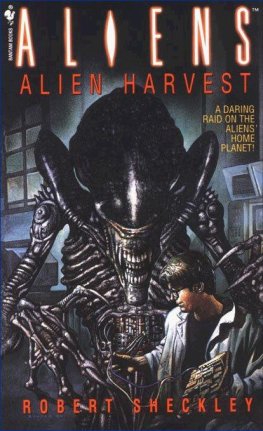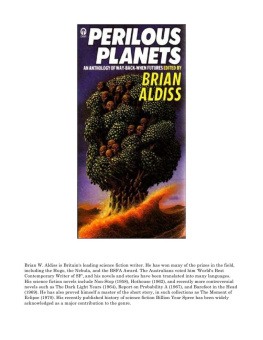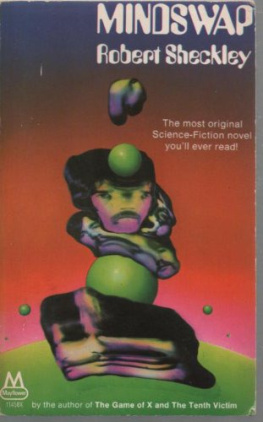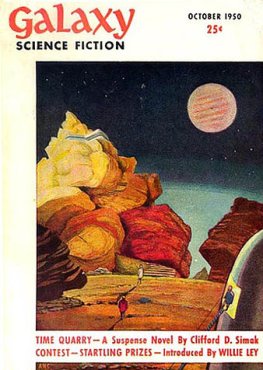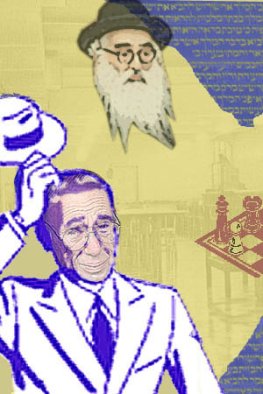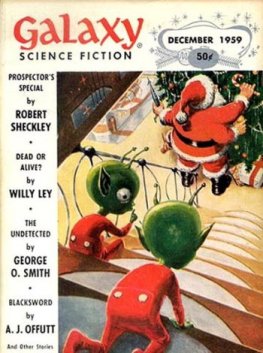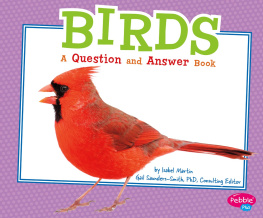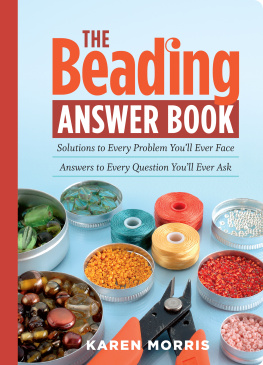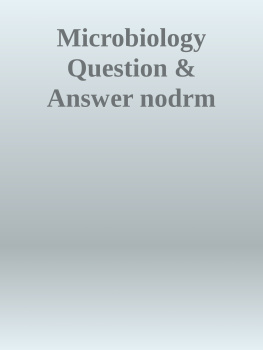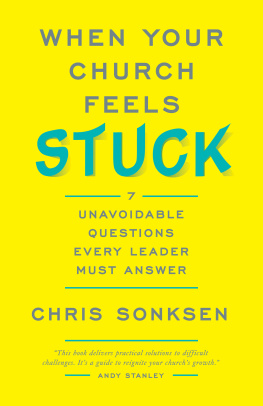Robert Sheckley - Ask a Foolish Question
Here you can read online Robert Sheckley - Ask a Foolish Question full text of the book (entire story) in english for free. Download pdf and epub, get meaning, cover and reviews about this ebook. genre: Science fiction. Description of the work, (preface) as well as reviews are available. Best literature library LitArk.com created for fans of good reading and offers a wide selection of genres:
Romance novel
Science fiction
Adventure
Detective
Science
History
Home and family
Prose
Art
Politics
Computer
Non-fiction
Religion
Business
Children
Humor
Choose a favorite category and find really read worthwhile books. Enjoy immersion in the world of imagination, feel the emotions of the characters or learn something new for yourself, make an fascinating discovery.

- Book:Ask a Foolish Question
- Author:
- Genre:
- Rating:3 / 5
- Favourites:Add to favourites
- Your mark:
- 60
- 1
- 2
- 3
- 4
- 5
Ask a Foolish Question: summary, description and annotation
We offer to read an annotation, description, summary or preface (depends on what the author of the book "Ask a Foolish Question" wrote himself). If you haven't found the necessary information about the book — write in the comments, we will try to find it.
Ask a Foolish Question — read online for free the complete book (whole text) full work
Below is the text of the book, divided by pages. System saving the place of the last page read, allows you to conveniently read the book "Ask a Foolish Question" online for free, without having to search again every time where you left off. Put a bookmark, and you can go to the page where you finished reading at any time.
Font size:
Interval:
Bookmark:
Ask A Foolish Question
by ROBERT SHECKLEY
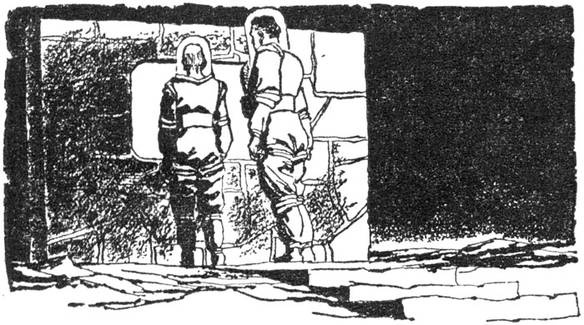
Answerer was built to last as long as was necessarywhich was quite long, as some races judge time, and not long at all, according to others. But to Answerer, it was just long enough.
As to size, Answerer was large to some and small to others. He could be viewed as complex, although some believed that he was really very simple.
Answerer knew that he was as he should be. Above and beyond all else, he was The Answerer. He Knew.
Of the race that built him, the less said the better. They also Knew, and never said whether they found the knowledge pleasant.
They built Answerer as a service to less-sophisticated races, and departed in a unique manner. Where they went only Answerer knows.
Because Answerer knows everything.
Upon his planet, circling his sun, Answerer sat. Duration continued, long, as some judge duration, short as others judge it. But as it should be, to Answerer.
Within him were the Answers. He knew the nature of things, and why things are as they are, and what they are, and what it all means.
Answerer could answer anything, provided it was a legitimate question. And he wanted to! He was eager to!
How else should an Answerer be?
What else should an Answerer do?
So he waited for creatures to come and ask.
"How do you feel, sir?" Morran asked, floating gently over to the old man.
"Better," Lingman said, trying to smile. No-weight was a vast relief. Even though Morran had expended an enormous amount of fuel, getting into space under minimum acceleration, Lingman's feeble heart hadn't liked it. Lingman's heart had balked and sulked, pounded angrily against the brittle rib-case, hesitated and sped up. It seemed for a time as though Lingman's heart was going to stop, out of sheer pique.
But no-weight was a vast relief, and the feeble heart was going again.
Morran had no such problems. His strong body was built for strain and stress. He wouldn't experience them on this trip, not if he expected old Lingman to live.
"I'm going to live," Lingman muttered, in answer to the unspoken question. "Long enough to find out." Morran touched the controls, and the ship slipped into sub-space like an eel into oil.
"We'll find out," Morran murmured. He helped the old man unstrap himself. "We're going to find the Answerer!"
Lingman nodded at his young partner. They had been reassuring themselves for years. Originally it had been Lingman's project. Then Morran, graduating from Cal Tech, had joined him. Together they had traced the rumors across the solar system. The legends of an ancient humanoid race who had known the answer to all things, and who had built Answerer and departed.
"Think of it," Morran said. "The answer to everything!" A physicist, Morran had many questions to ask Answerer. The expanding universe; the binding force of atomic nuclei; novae and supernovae; planetary formation; red shift, relativity and a thousand others.
"Yes," Lingman said. He pulled himself to the vision plate and looked out on the bleak prairie of the illusory sub-space. He was a biologist and an old man. He had two questions.
What is life?
What is death?
After a particularly-long period of hunting purple, Lek and his friends gathered to talk. Purple always ran thin in the neighborhood of multiple-cluster starswhy, no one knewso talk was definitely in order.
"Do you know," Lek said, "I think I'll hunt up this Answerer." Lek spoke the Ollgrat language now, the language of imminent decision.
"Why?" Ilm asked him, in the Hvest tongue of light banter. "Why do you want to know things? Isn't the job of gathering purple enough for you?"
"No," Lek said, still speaking the language of imminent decision. "It is not." The great job of Lek and his kind was the gathering of purple. They found purple imbedded in many parts of the fabric of space, minute quantities of it. Slowly, they were building a huge mound of it. What the mound was for, no one knew.
"I suppose you'll ask him what purple is?" Ilm asked, pushing a star out of his way and lying down.
"I will," Lek said. "We have continued in ignorance too long. We must know the true nature of purple, and its meaning in the scheme of things. We must know why it governs our lives." For this speech Lek switched to Ilgret, the language of incipient-knowledge.
Ilm and the others didn't try to argue, even in the tongue of arguments. They knew that the knowledge was important. Ever since the dawn of time, Lek, Ilm and the others had gathered purple. Now it was time to know the ultimate answers to the universewhat purple was, and what the mound was for.
And of course, there was the Answerer to tell them. Everyone had heard of the Answerer, built by a race not unlike themselves, now long departed.
"Will you ask him anything else?" Ilm asked Lek.
"I don't know," Lek said. "Perhaps I'll ask about the stars. There's really nothing else important." Since Lek and his brothers had lived since the dawn of time, they didn't consider death. And since their numbers were always the same, they didn't consider the question of life.
But purple? And the mound?
"I go!" Lek shouted, in the vernacular of decision-to-fact.
"Good fortune!" his brothers shouted back, in the jargon of greatest-friendship.
Lek strode off, leaping from star to star.
Alone on his little planet, Answerer sat, waiting for the Questioners. Occasionally he mumbled the answers to himself. This was his privilege. He Knew.
But he waited, and the time was neither too long nor too short, for any of the creatures of space to come and ask.
There were eighteen of them, gathered in one place.
"I invoke the rule of eighteen," cried one. And another appeared, who had never before been, born by the rule of eighteen.
"We must go to the Answerer," one cried. "Our lives are governed by the rule of eighteen. Where there are eighteen, there will be nineteen. Why is this so?"
No one could answer.
"Where am I?" asked the newborn nineteenth. One took him aside for instruction.
That left seventeen. A stable number.
"And we must find out," cried another, "Why all places are different, although there is no distance."
That was the problem. One is here. Then one is there. Just like that, no movement, no reason. And yet, without moving, one is in another place.
"The stars are cold," one cried.
"Why?"
"We must go to the Answerer."
For they had heard the legends, knew the tales. "Once there was a race, a good deal like us, and they Knewand they told Answerer. Then they departed to where there is no place, but much distance."
"How do we get there?" the newborn nineteenth cried, filled now with knowledge.
"We go." And eighteen of them vanished. One was left. Moodily he stared at the tremendous spread of an icy star, then he too vanished.
"Those old legends are true," Morran gasped. "There it is."
They had come out of sub-space at the place the legends told of, and before them was a star unlike any other star. Morran invented a classification for it, but it didn't matter. There was no other like it.
Swinging around the star was a planet, and this too was unlike any other planet. Morran invented reasons, but they didn't matter. This planet was the only one.
"Strap yourself in, sir," Morran said. "I'll land as gently as I can."
Lek came to Answerer, striding swiftly from star to star. He lifted Answerer in his hand and looked at him.
"So you are Answerer," he said.
"Yes," Answerer said.
"Then tell me," Lek said, settling himself comfortably in a gap between the stars, "Tell me what I am."
Font size:
Interval:
Bookmark:
Similar books «Ask a Foolish Question»
Look at similar books to Ask a Foolish Question. We have selected literature similar in name and meaning in the hope of providing readers with more options to find new, interesting, not yet read works.
Discussion, reviews of the book Ask a Foolish Question and just readers' own opinions. Leave your comments, write what you think about the work, its meaning or the main characters. Specify what exactly you liked and what you didn't like, and why you think so.

